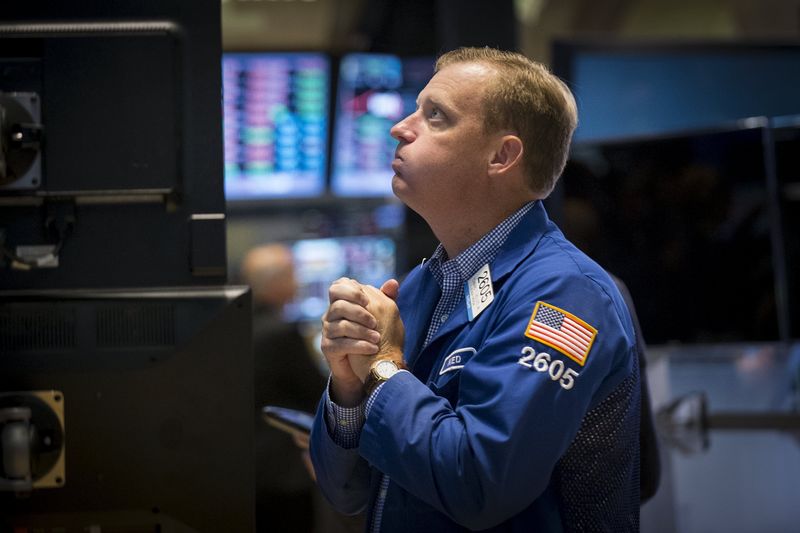By Yasin Ebrahim
Investing.com – The S&P 500 slipped Tuesday, as investors had to contend with another day of wild swings just a day ahead of the start of quarterly earnings, and an update on inflation.
The S&P 500 fell 0.2%, the Dow Jones Industrial Average slipped 0.34%, or 118 points, the Nasdaq Composite was down 0.14%.
Investors continued to keep their powder dry, with just a day to go until major Wall Street banks kick off the quarterly earnings season in earnest.
Banking stocks are up about 40% for the year so far, as the favorable backdrop of rising rates continues to support the sector.
JPMorgan Chase & Co (NYSE:JPM) reports third-quarter results Wednesday, followed by Citigroup (NYSE:C), Wells Fargo, Bank of America (NYSE:BAC), and Morgan Stanley (NYSE:MS) on Thursday.
Loan growth, which has slumped since the pandemic and been slow to recover, will likely be one of the closely watched metrics.
Big tech traded mostly lower, struggling to shake off the sluggish start to the week even as Treasury yields, the foe of growth stocks, fell.
Google-parent Alphabet (NASDAQ:GOOGL), Apple (NASDAQ:AAPL), Facebook (NASDAQ:FB) were in the red, while Amazon (NASDAQ:AMZN) was in the green.
Apple, meanwhile, said it plans to launch an event on Oct. 18, during which the company could unveil new MacBook laptops and AirPods headphones.
Tech was also dragged lower by fall in iShares Semiconductor ETF (NASDAQ:SOXX), paced by a decline in Micron Technology (NASDAQ:MU) on concerns about margin pressures in the memory-chip market amid supply chain woes.
The 10-year Treasury yield fell below 1.6% following auction results that showed demand for the note remained strong.
Ahead of the inflation report due Wednesday, Fed members continue to flag above-trend inflation as a concern.
“Underlining inflation is indeed above the committees 2% objective,” Atlanta Federal Reserve President Raphael Bostic said Tuesday. “Severe and pervasive supply chain issues will probably last longer than initially expected.
Concerns about persistent inflation come at time when global growth is expected to slow, exacerbating investor fears of stagflation.
The International Monetary Fund trimmed its global gross domestic product by 0.1% to 5.9% for this year from 6.0% in July.
The U.S. is expected to report Wednesday that consumer price index for the 12 months through September rose by 5.3%. The sharp pace of inflation, however, will eventually fade as supply starts to catch up with strong demand.
"In the US, the growth slowdown has bottomed, the unemployment rate continues to decline, and much – though by no means all – of the surge in inflation will fade next year," Morgan Stanley said.
"We find little in the outlook to support the theory [of US stagflation] and believe the role of demand is underappreciated,” it added.
In Washington, the House is expected to vote on and pass the $480 billion short-term debt ceiling hike later Tuesday, providing the U.S. with funding until early December. The legislative measure needs to be signed into law before the Oct. 18 deadline to avoid the U.S. defaulting on its debt.
